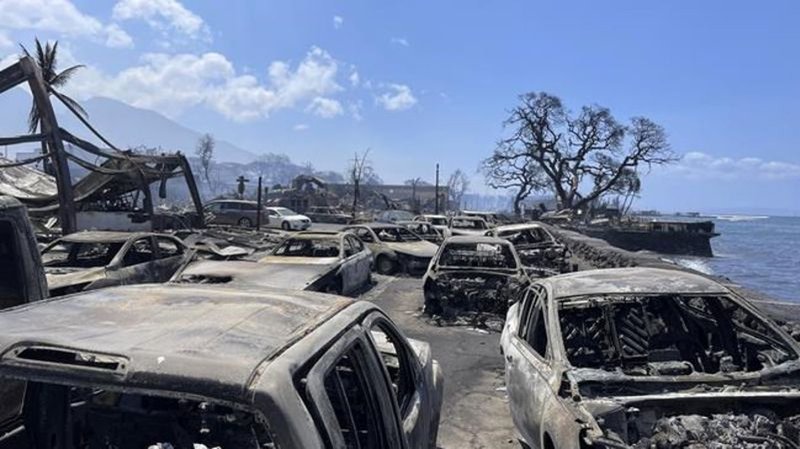
Maui residents had little warning before flames overtook town. At least 53 people died.
LAHAINA, Hawaii (AP) — Maui residents who made desperate escapes from flames, some on foot, asked why Hawaii’s famous emergency warning system didn’t alert them as fires raced toward their homes, in interviews at evacuation centers Thursday.
Hawaii emergency management records show no indication that the warning sirens were triggered before a devastating wildfire killed at least 53 people and wiped out a historic town, officials confirmed Thursday.
Hawaii boasts what the state describes as the largest integrated outdoor all-hazard public safety warning system in the world, with about 400 sirens positioned across the island chain. But many of Lahaina’s survivors said they didn’t hear any sirens and only realized they were in danger when they saw flames or heard explosions nearby.
Thomas Leonard, a 70-year-old retired mailman from Lahaina, didn’t know about the fire until he smelled smoke. Power and cell phone service had both gone out earlier that day, leaving the town with no real-time information about the danger. He tried to leave in his Jeep, but had to abandon the vehicle and run to the shore when cars nearby began exploding. He hid behind a sea wall for hours, the wind blowing hot ash and cinders over him.


